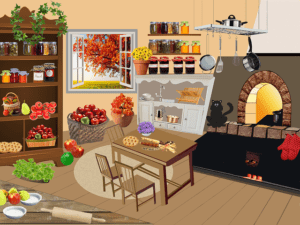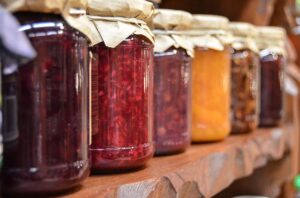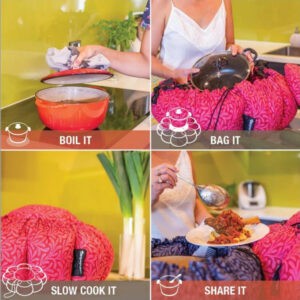Power Solutions 3 – Food Preservation and preparation
 Part 3 of our power brainstorming session. You’ll recall our topics were:
Part 3 of our power brainstorming session. You’ll recall our topics were:
- Whole house power
- Heating and cooling
- Food preservation and preparation
- Lighting, communications and devices
- Washing and hygiene
So, yes, you’ve got it, we’re up to what to do with our food.
Preservation
Fridges and freezers:
- These are a priority if there’s not much power
- If power fails, and the outage is expected to be short, don’t open them and things will keep cold for a couple of days (approximately 4 hours fridge and 48 hours for a full freezer)
- A chest freezer will hold the cold better than an upright one if you have to open it
- A full freezer will keep the cold in better than a partly full one, so if you have emptyish freezers, think about what else can take up the space till its needed
- If the power outage is likely to be prolonged, and you have no way to keep your appliances going, eat the perishables from your fridge first, then from the freezer. But hopefully we all now have a backup plan to keep them going.
If you have a local community that you are sharing resources with, and someone has solar or other power capabilities – do they have room for an extra freezer that can be a community asset?
 Other ways to preserve our fresh food ahead of time, that don’t depend on power for storage:
Other ways to preserve our fresh food ahead of time, that don’t depend on power for storage:
- dehydrating in a dehydrator, freeze drying, or can dry some items in the sun
- canning / bottling – need glass jars, seal lids and a method for sterilising jars – boiling in a big pot, heating in the oven
- fermenting or brining
- smoking
- preserve meat in fat
- have salt, sugar, vinegar in pantry
Have stock of food that is:
- dried or canned
- especially food that doesn’t need cooking or preparing but can be eaten cold – cans, protein powders and shakers, foil pouches, pasta and sauce, ready meals in a can such as tuna, stews or soups.
We plan to have another brain storming session around food preservation and stocking up in general, and will talk about:
- Learning more about these ways of preserving and getting together to ferment or bottle as a group
- Learning more about foraging and fishing, especially good areas locally
- What types of food to store
- What other items we might need to store
- Downloading, printing and buying books – as we may not be able to access internet – and how to share the resources
- We may also explore some of the Voices for Freedom webinars by Muna Lee on holistic living and prepping (looks like another video and popcorn night)
But for now, we’re focusing on how to get around to having no or little power, so getting back on topic…
Food Preparation
If we’re just aiming to use less power, it might be helpful to explore which of these ways of preparing food uses least amount of power, while still producing healthy food. This is a topic that needs more research.
- Microwave probably uses least power, but there are health issues as the food is denatured
- Pressure cooker
- Air fryer
- Slow cooking
 What we spent more time exploring was methods using little to no electric power:
What we spent more time exploring was methods using little to no electric power:
- Using our wood or coal burning stoves eg potatoes wrapped in foil, always have water heating on top
- BBQs, camping stoves or other types of brazier fires – bearing in mind we will need either gas or some other fuel, so need to keep a supply
- Solar power ovens – we need to research these more. You can make homemade ones, lined with foil. Can we also buy solar ovens ready made?
- Stews can be heated to boiling, then kept hot all day to slow cook. (You will need a method to do the initial heat, or have someone nearby with a power source). There are various methods e.g:
- wonder bags – made from cloth and bean bag beans, can be made or bought online
- wrap a ceramic pots in towels or blankets
- Thermos brand food flasks with wide mouth, found in most kitchenware places – some instructions here
- Have a cast iron something to cook with, can put straight on a fire and stays hot for a long time
- Households that are near each other can maybe bulk cook together or even lay down a hangi
 Sharing community resources
Sharing community resources
Would it be a good idea to have certain appliances / equipment available for a community group:
- Dehydrator
- Air fryer
- Pressure cooker
- Large stock pot
- Smoker
- Maybe even crowd fund a freeze drier?
Other topics
Whole house power ~ Heating and cooling ~ Lighting, communications and devices ~ Washing and hygiene
